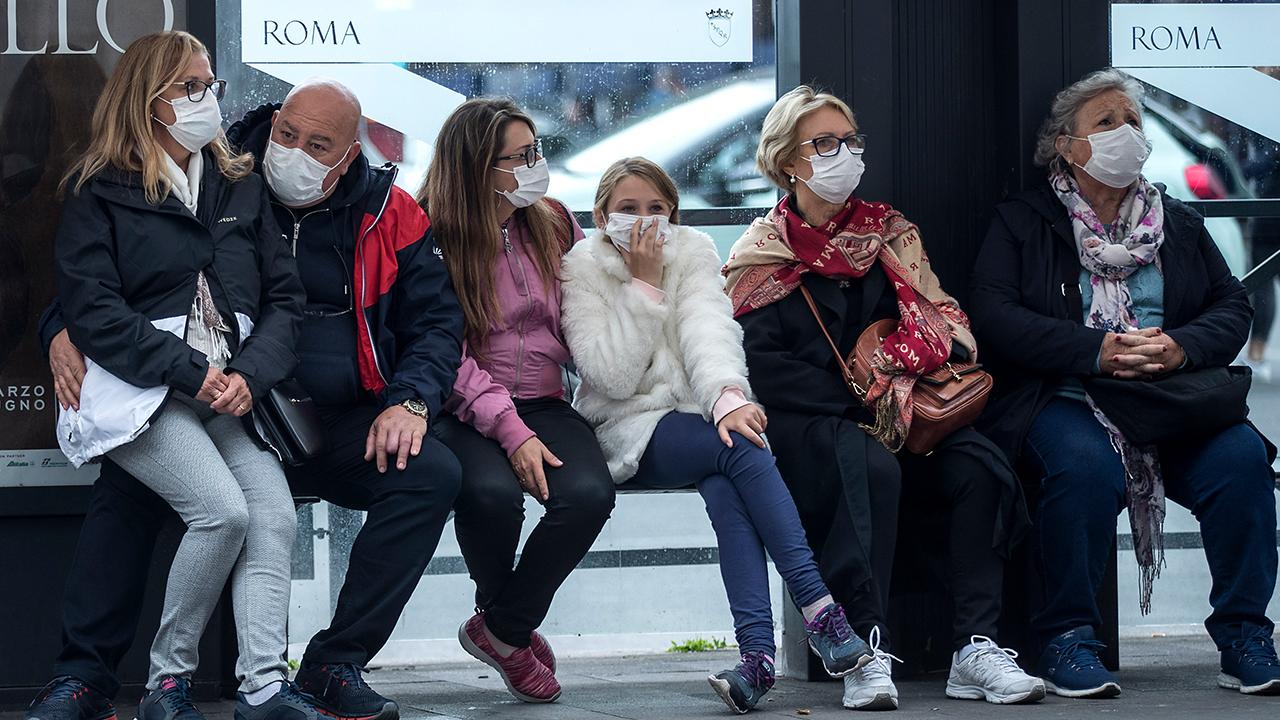How courts are handling coronavirus outbreak
At least 76,514 COVID-19 cases were reported nationwide as of Thursday afternoon
Get all the latest news on coronavirus and more delivered daily to your inbox. Sign up here.
The new coronavirus pandemic has caused most aspects of American life to come to a halt – with states across the country ordering residents to stay inside and keep their distance from others unless absolutely necessary.
As of Thursday afternoon, at least 76,514 COVID-19 cases were reported nationwide, resulting in 1,093 deaths, according to data from Johns Hopkins University and Medicine.
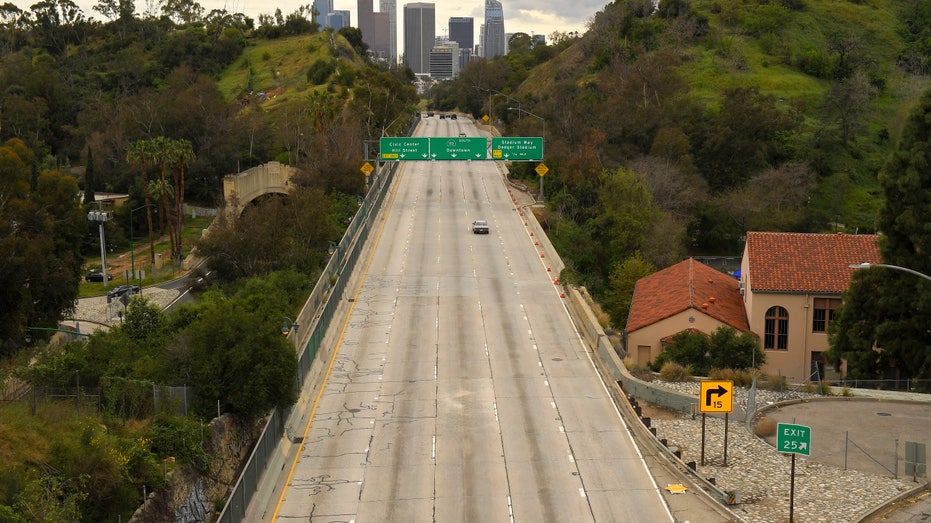
The 110 Harbor Freeway on March 20, 2020, in Los Angeles, California. (AP Photo/Mark J. Terrill)
UNEXPECTED ‘ESSENTIAL BUSINESSES’ IDENTIFIED AMID CORONAVIRUS
As officials, regardless of region, continue to grapple with the effects of the pandemic, many have instituted changes in their court system as one way of further curtailing the spread. Here’s how courts in some of the most populated states nationwide have responded:
CALIFORNIA
California was the first state to take the drastic measure of effectively shutting down, asking residents to shelter in place unless they need to attend to essential business or activities.
The state reported 3,247 COVID-19 cases as of Thursday afternoon, the third-worst in the nation, according to the Johns Hopkins data.
Courts fall within the description of “essential services,” according to Gov. Gavin Newsom’s executive order, but California’s chief justice, Tani G. Cantil-Sakauye, announced Monday the state’s court system would discontinue jury trials for at least 60 days, according to a press release posted to the court system’s website.
POLICING AMID CORONAVIRUS PANDEMIC: HOW THESE BIG CITIES ARE RESPONDING
Cantil-Sakauye attributed the decision to the inability to ensure court officials could “meet stringent health directives,” such as those associated with social distancing and limiting the number of people who gather at once.
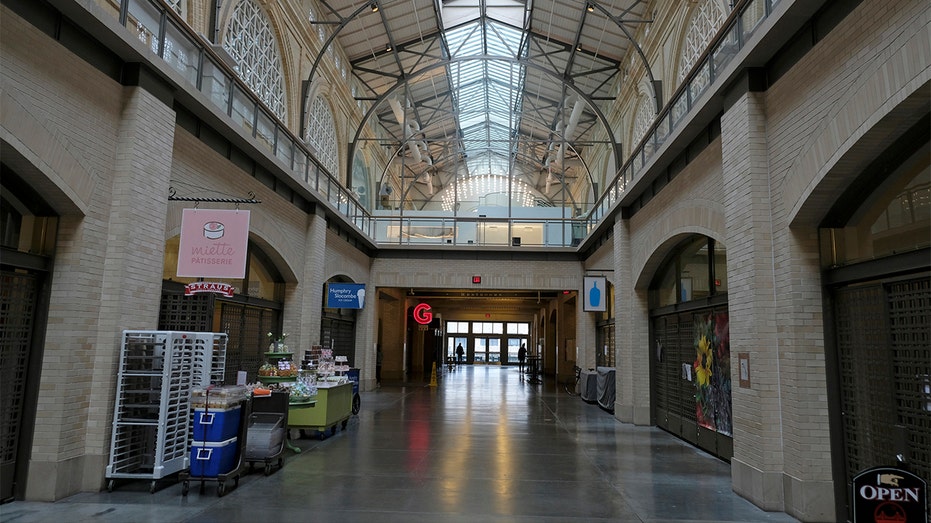
The main hallway of the Ferry Building Marketplace is mostly empty on March 16, 2020, in San Francisco. (AP Photo/Eric Risberg)
"Even if court facilities could allow for sufficient social-distancing, the closure of schools means that many court employees, litigants, witnesses, and potential jurors cannot leave their homes to attend court proceedings because they must stay home to supervise their children,” she said. “These restrictions have also made it nearly impossible for courts to assemble juries."
In addition to suspending jury trials, Cantil-Sakauye extended the period of time allotted for beginning criminal and civil matters.
TEXAS
Texas’ Judicial Branch has taken a number of steps amid the pandemic, which has sickened at least 1,439 people in the state, data shows.
On March 13, court officials were ordered to change or suspend all court deadlines to 30 days from the date that Texas’ “State of Disaster” has been lifted. Judges can also use their discretion in allowing such deadline extensions to also apply to statutes of limitations, according to the court's website.
CLICK HERE TO GET THE LATEST CORONAVIRUS COVERAGE
Officials were also required to allow anyone involved in a case to call or video into the scheduled hearings and to allow any sworn statements gathered via teleconferencing or video conferencing to be accepted as evidence.
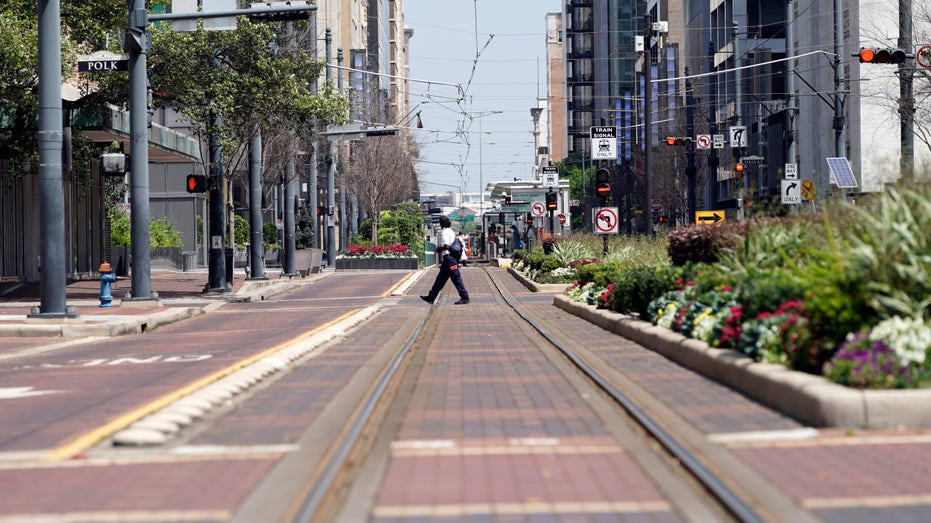
A man crosses a nearly empty Main Street in downtown Houston, on March 24, 2020. (AP Photo/David J. Phillip)
Days later, on March 18, judges were further barred from conducting nonessential court proceedings in person, per the governor’s executive order, which limited in-person gatherings to 10 people.
All eviction proceedings were prohibited until at least after April 19, 2020, the same date on which new eviction filings could be resumed.
The state’s Office of Court Administration recommended officials “delay in-person proceedings of any size until at least May 1.”
The court’s website provides a list of court closures – with the reason being listed as “Pandemic” – and dates when they expect to be reopened.
FLORIDA
Florida’s court system postponed all “non-essential” proceedings on March 18, 2020, until March 27, though the website does not include any information about what will happen at the conclusion of this week – whether nonessential matters will resume or if they will be further postponed.
The following types of proceedings were considered essential, according to the website:
- “First appearance;
- “Criminal arraignments as necessary;
- “Hearings on motions to set or modify monetary bail for individuals who are in custody;
- “Juvenile dependency shelter hearings;
- “Juvenile delinquency detention hearings;
- “Hearings on petitions for temporary injunctions relating to safety of an individual;
- “Hearings on petitions for risk protection orders;
- “Hearings on petitions for the appointment of an emergency temporary guardian;
- “Hearings to determine whether an individual should be involuntarily committed under the Baker Act or the Marchman Act, and;
- “Hearings on petitions for extraordinary writs as necessary to protect constitutional rights.”
Florida’s court system also allowed notaries and other accredited members to administer oaths remotely.
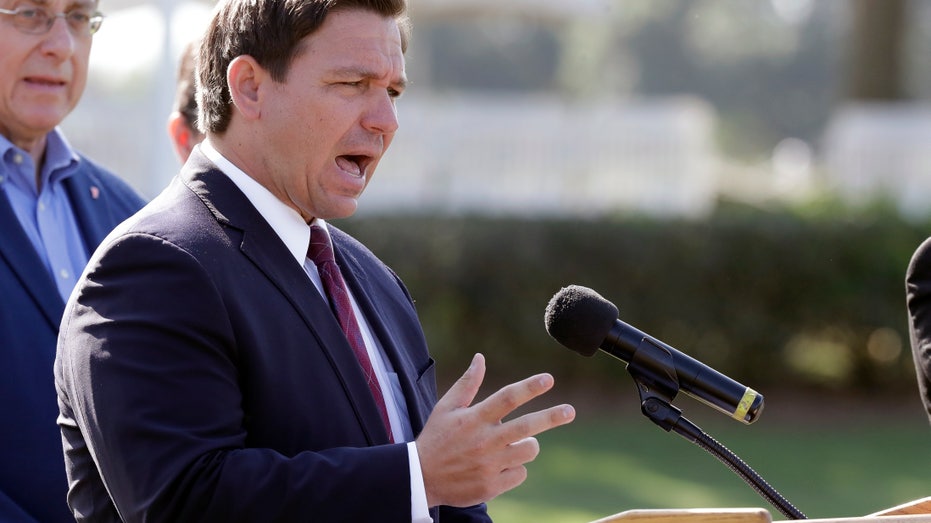
Florida Gov. Ron DeSantis delivers remarks during a press conference at a coronavirus mobile testing site on March 23, 2020, in The Villages, Fla. (AP Photo/John Raoux)
Gov. Ron DeSantis has been resistant to the execution of a statewide shelter-in-place order despite the urging of some local officials.
As of Thursday afternoon, at least 2,357 cases were reported in the Sunshine State, data shows.
NEW YORK
New York boasts the highest number of COVID-19 cases nationwide by far, with 37,678 people reportedly sickened as of Thursday afternoon.
The court system’s chief judge, Janet DiFiore, said New York City’s Criminal and Family Courts would be moving to a virtual model by Wednesday and Thursday, respectively, meaning all essential business would be conducted remotely.
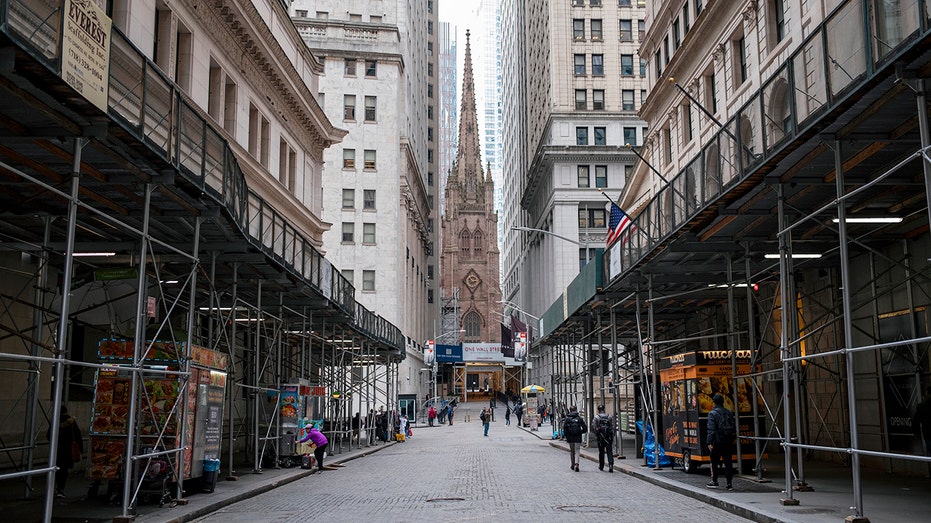
Pedestrian traffic is light along Wall Street in Lower Manhattan, on March 16, 2020, in New York. (AP Photo/Craig Ruttle)
WHAT DOES IT MEAN TO SHELTER IN PLACE?
That said, New York state’s court system is open for critical, essential matters, while nonessential functions will be suspended until further notice. Similarly, nonessential filings will be accepted for the time being, excluding cases involving child protection and bail applications.
PENNSYLVANIA
Pennsylvania has been hit with at least 1,691 confirmed COVID-19 cases as of Thursday afternoon, data shows.
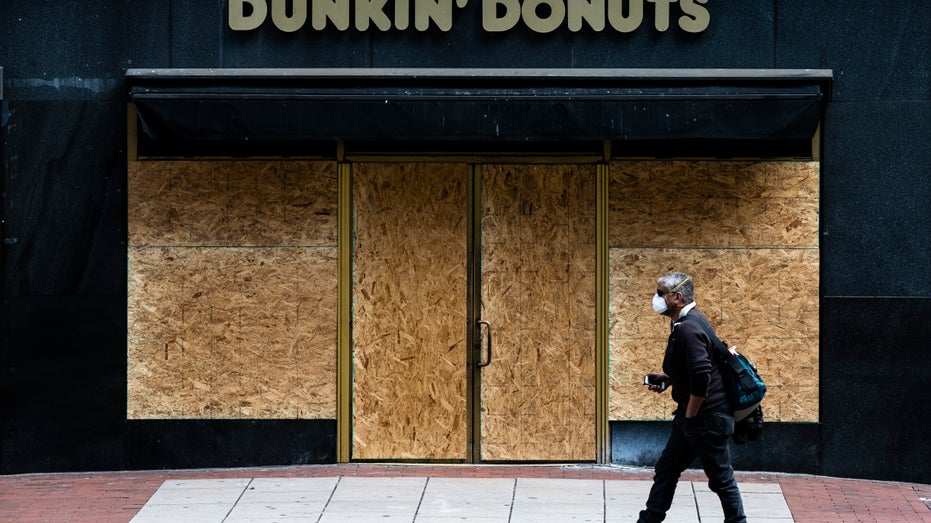
A person wearing protective masks due to coronavirus fears walks past a boarded-up business in Philadelphia, on March 24, 2020. (AP Photo/Matt Rourke)
The Supreme Court of Pennsylvania ordered all state courts closed to the public starting March 19, until at least April 3, 2020, barring any specified exceptions, according to an announcement posted to its website that declared a “General Statewide Judicial Emergency.”
The ruling also suspended Superior and Commonwealth Court functions and, in turn, extended deadlines until after the fact.
CLICK HERE TO READ MORE ON FOX BUSINESS
The Associated Press contributed to this report.




















